Gaming Phones. I was never particularly attracted to these phones, if I’m being honest. I always thought that they were too garish, too over the top and too ah beng for my taste. Plus, I’m not a mobile gamer, so I never saw the point, y’know?
But, for the last two weeks, I decided to spend some quality time with two of the most capable gaming smartphones money can buy right now just to see what’s what.
I started my journey with one of the most ridiculous smartphones I’ve ever used. This monster of a device is called the Black Shark 3 Pro, and it’s absurd. For starters, it’s a MASSIVE device. In a year full of slim bezels and svelte phones, the Black Shark 3 Pro is unapologetic in its proportions.
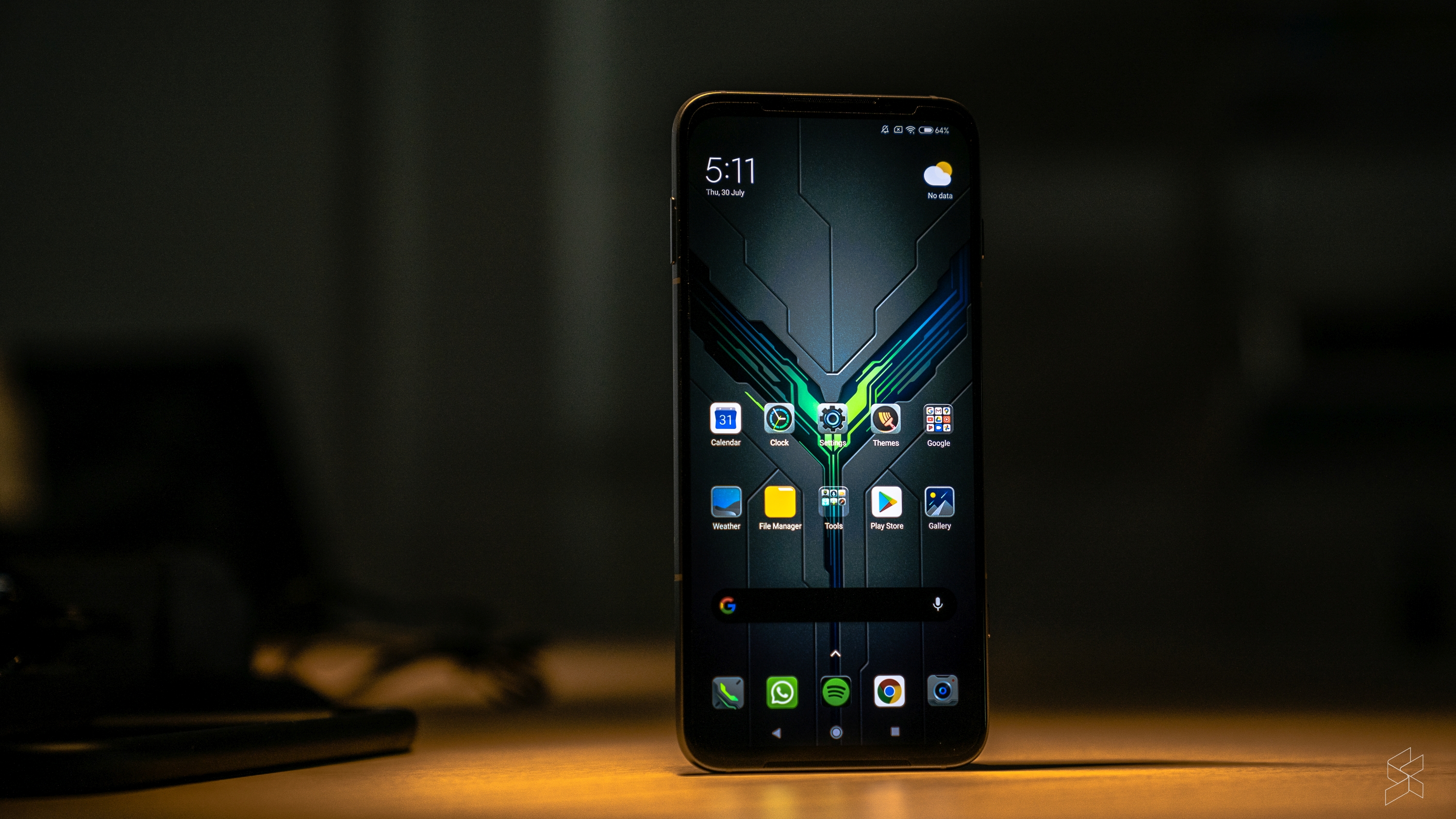
It has a huge 7.1” Quad HD AMOLED display up front with a sizable chin and forehead without any curvy durvy shenanigans. This screen also has a 90Hz refresh rate, so it’s a pretty sweet screen to behold.
Obviously, it also packs one a punch, being powered by the Snapdragon 865 processor, 8GB of RAM and 256GB of internal storage. If you want a little more memory, there’s a higher spec variant with 12GB of RAM instead.
I’ll be honest, I initially found the size to be off-putting. It’s comically huge by today’s standards, and virtually impossible to comfortably use with one hand. Like, look at where the power button is, why is it so high up the side of the phone?
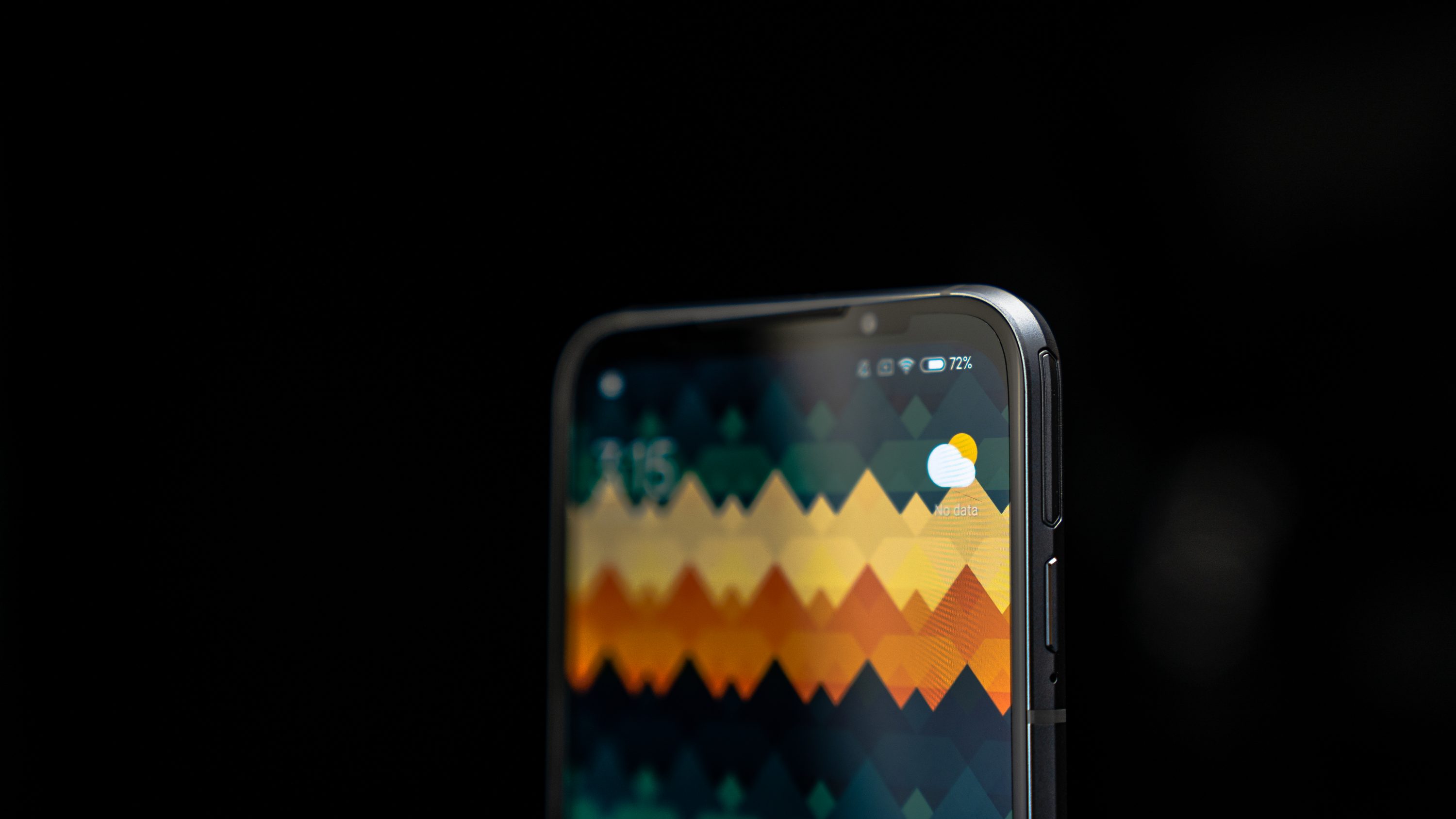
Plus, I don’t think the build feels particularly premium either. Maybe back in 2015 because it reminds me a lot of the Nexus 6P, but it’s a far-cry from the gorgeous glass and metal sandwiches of today’s conventional flagships.
Then I started using it to actually play some mobile games, and everything suddenly made sense. The Black Shark 3 Pro was meant to be used like this—like a game console.
The curved corners, width and girth of the handset fit beautifully in my hands when using it in landscape. The larger forehead and chin also meant there were no accidental touches to worry about so I could focus on what was happening in-game.
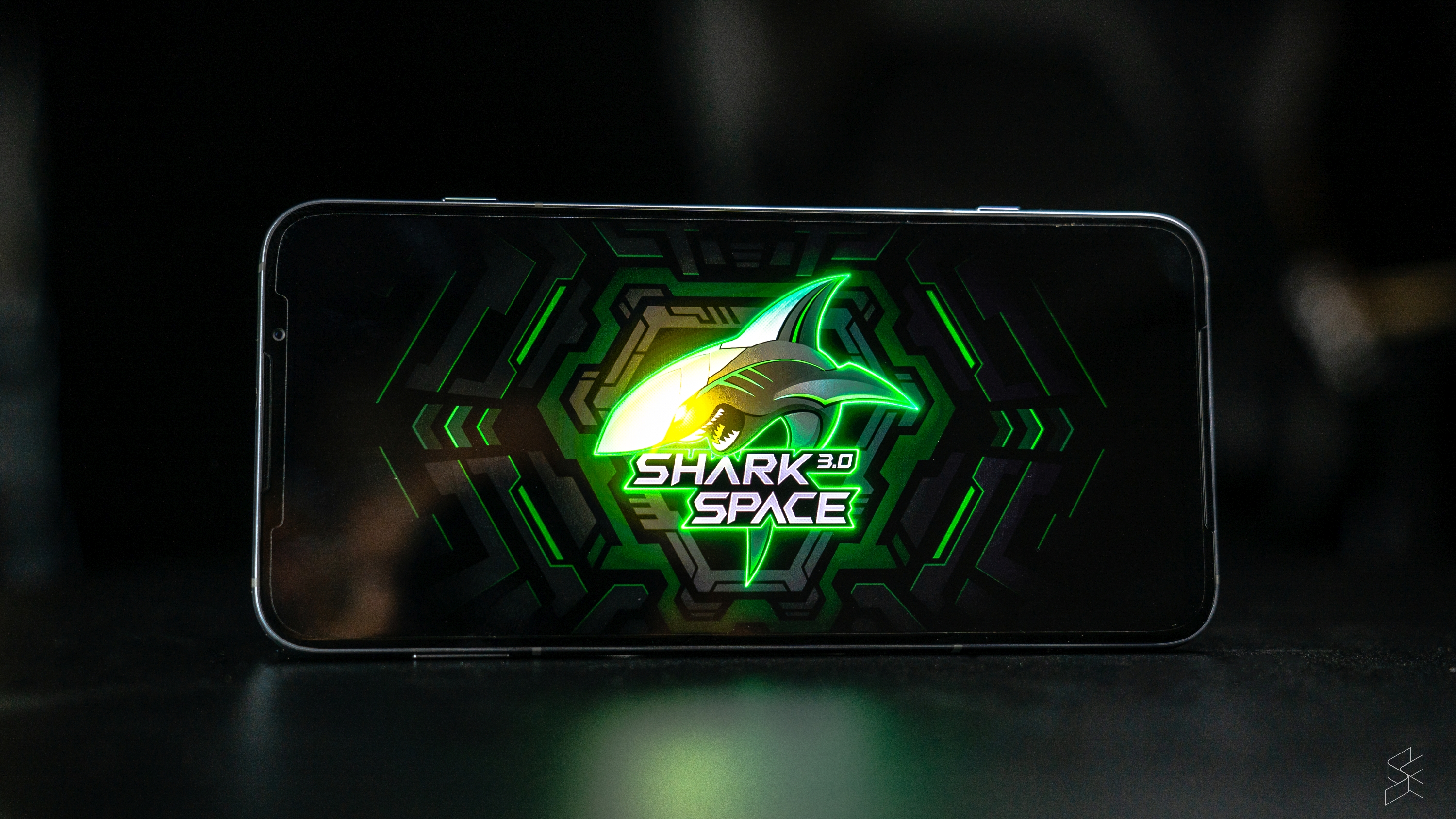
Also, I would like to submit a petition to have smartphone manufacturers bring back front-facing stereo speakers. They’re just better.
Though, I do wish these had a bit more volume because they’re a little soft considering the size.
It also has a bunch of gaming-centric features designed to amp up your experience. Stuff like a 3.5mm headphone jack at the top of the device, a dedicated slider to enable Shark Mode, and my favourite feature of all: pop-up shoulder buttons.
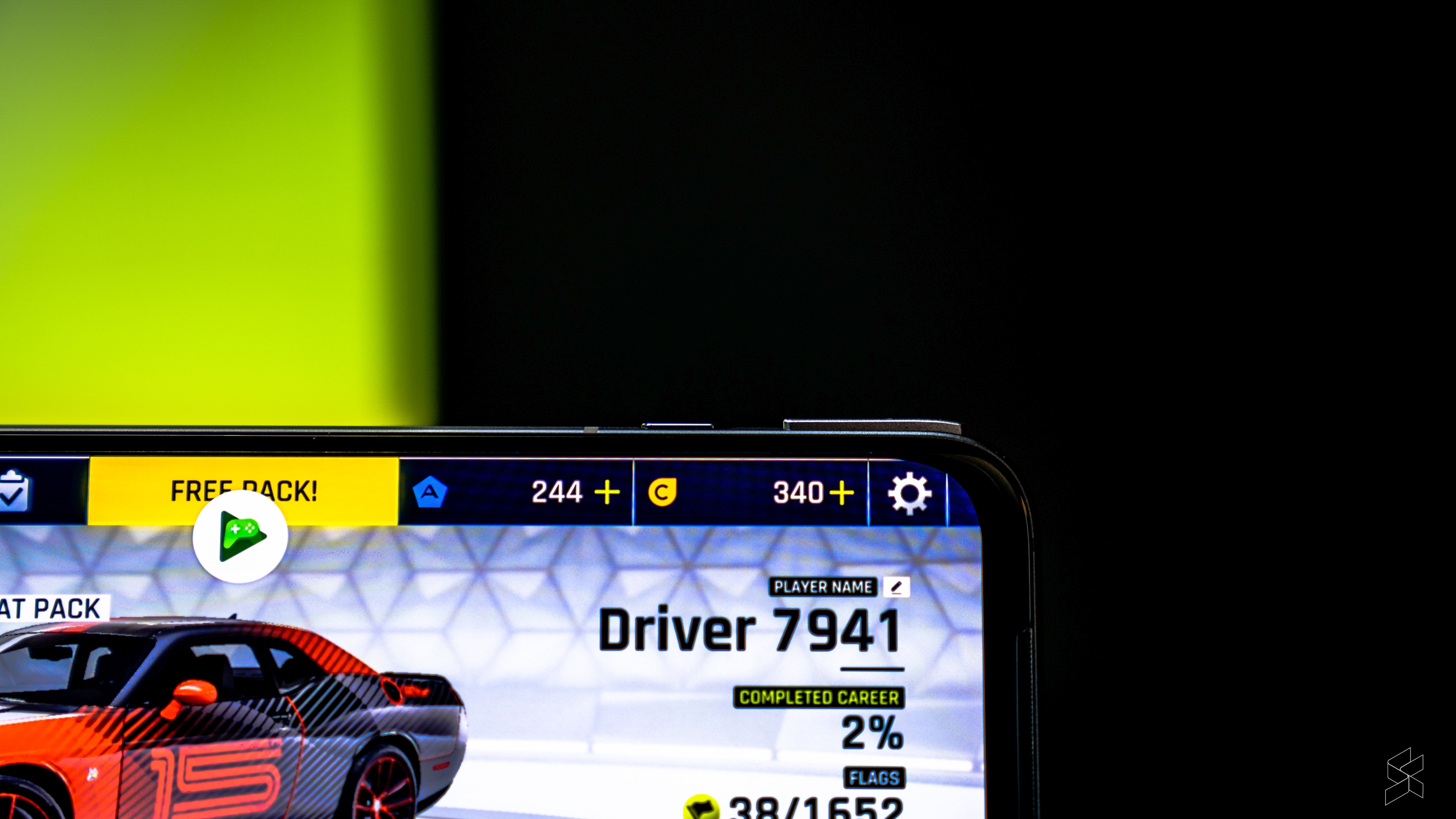
Who thought of this? Who looked at a smartphone and thought, you know what that phone needs? Pop-up shoulder buttons. Whoever you are, that was a great idea.
No, really. I’ve used several different versions of the capacitive shoulder buttons before and none of them feel as good as a proper physical button. Always knowing how hard to press to get an actuation plus the tactility of the click is just so much better in an intense gaming situation.
And, when you’re not in the game, these shoulder buttons just tuck away into the frame like they were never there in the first place. It’s awesome.
Finally, I want to talk about the battery life. The Black Shark 3 Pro has a 5,000 mAh battery with support for some crazy fast 65W fast-charging solution because it’s actually two batteries combined to one or something like that. The point is, battery life on this device is great. I’m comfortably able to last an entire day with this phone with over 6.5 hours of screen-on time with the screen at 90Hz. That’s an A in my books
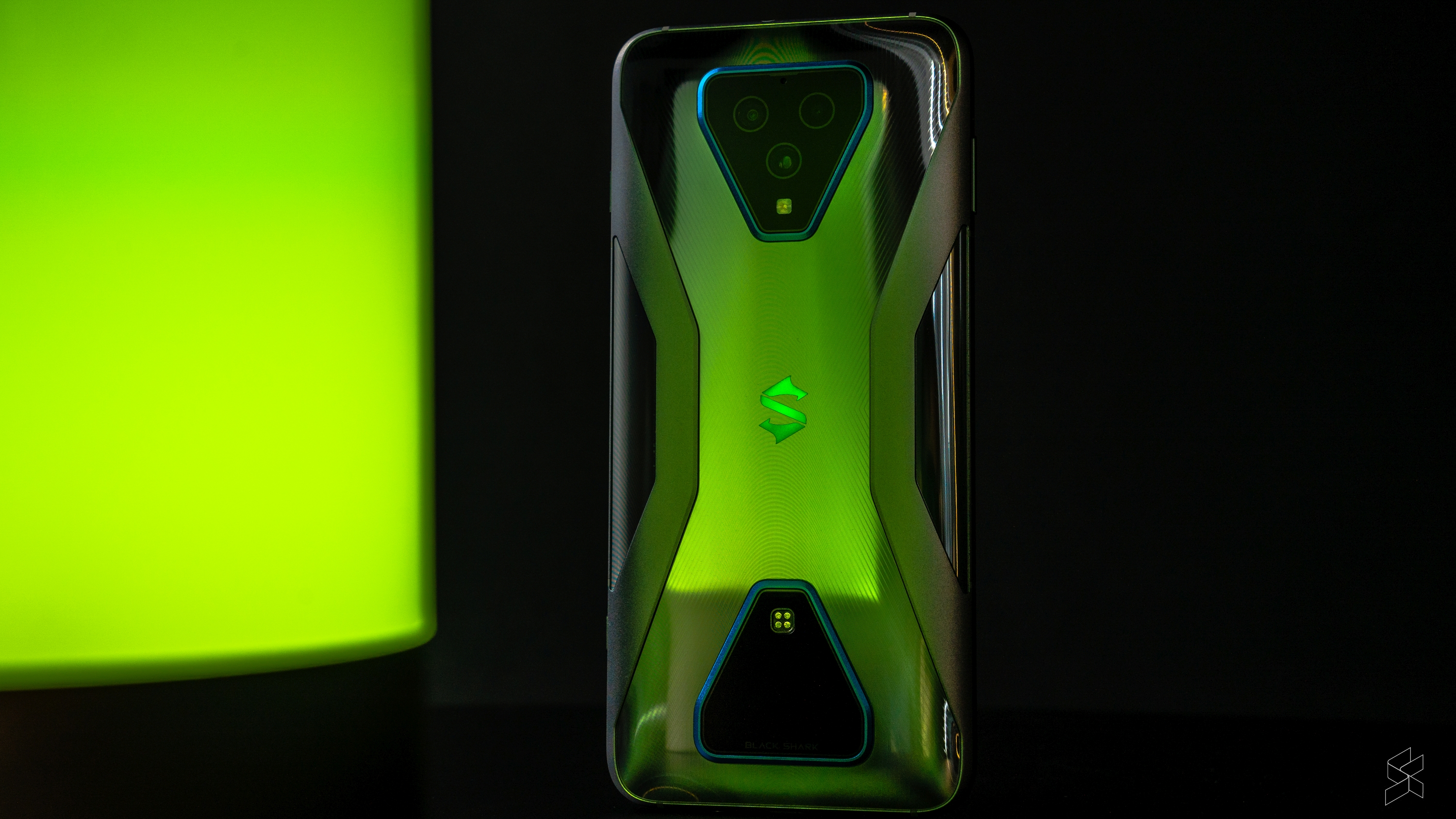
So far, I’m liking a lot of what I’m seeing with the Black Shark 3 Pro. It’s powerful, has a long battery life and an excellent screen.
But, despite having all those positives, I did find it hard to live with…all this. I still think it’s way too big, way too garish and a bit too much for someone like me to daily drive. And if you’re thinking the same, well I do have some good news for you because this next phone is way more my speed.
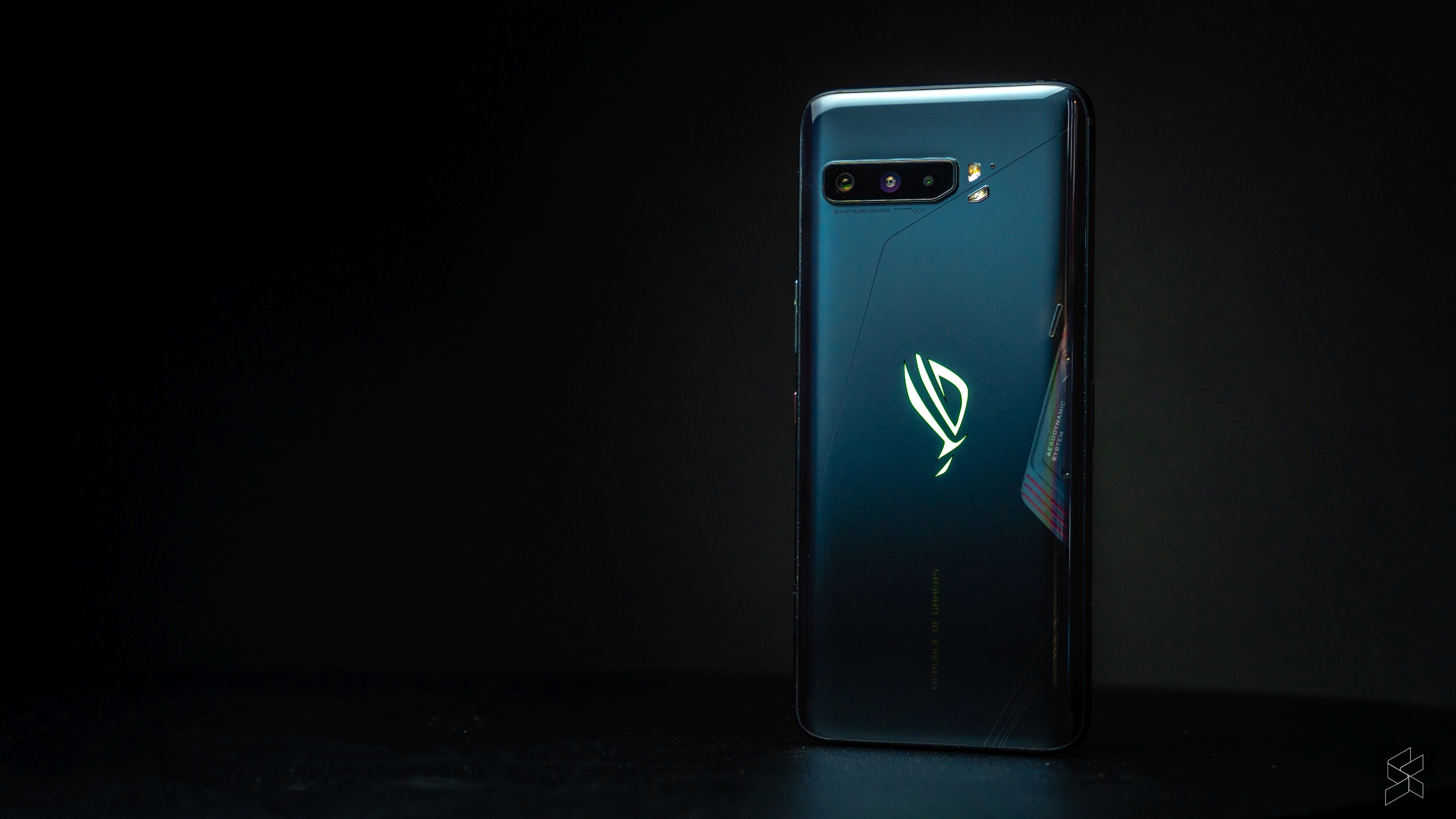
This is the ROG Phone 3, and like the Black Shark 3 Pro, it’s also an all out high-end gaming smartphone…only it’s got even more. It is more powerful, featuring a Snapdragon 865+ processor, up to 16GB of LPDDR5 RAM and 512GB of UFS 3.1 internal storage.
There are front-facing stereo speakers too, but the ones on the ROG Phone 3 are also louder which I’m a fan of.
It also has a bigger battery, featuring a 6,000 mAh cell that offers even better battery life than the Black Shark 3 Pro. And by better, I mean over 10 hours of total screen-on time with the auto refresh-rate better.
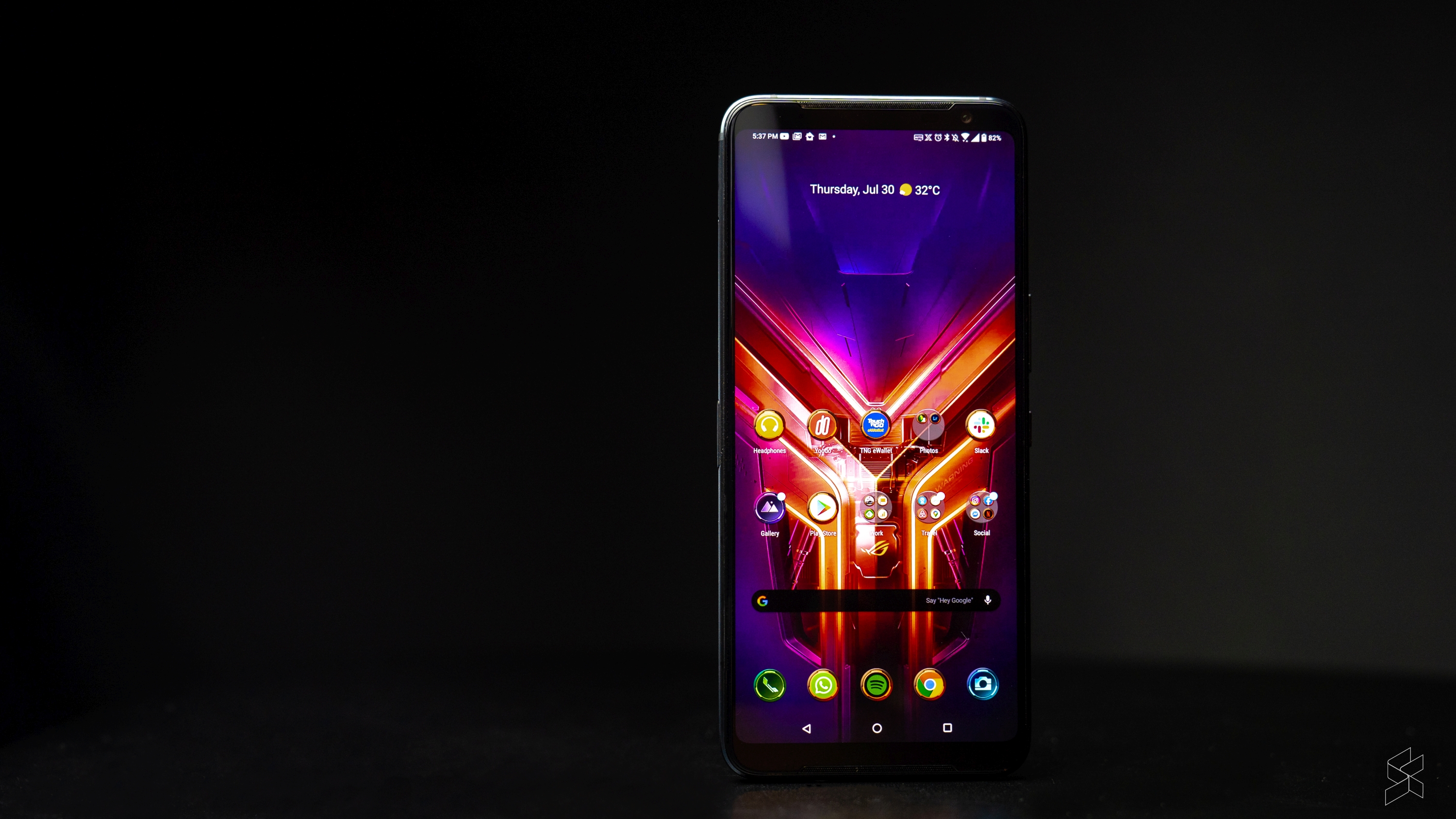
And while it has a smaller 6.59” AMOLED display that pushes a Full HD+ resolution, this panel boasts a staggering 144Hz refresh rate making it one of only two smartphones in the world to have a screen this fast. And, if you’re willing to tinker around with it, it’ll apparently do 160Hz too.
It even has two USB-C ports, one on the bottom and one on the side. Now, it doesn’t have 65W fast-charging, but it still features very fast 30W Quick Charge 4.0 charging speeds.
It also comes with a strap-on cooler in the box which also works as a kickstand and features a 3.5mm headphone jack for you to stick your headphones in. Though you will have to choose between one or the other because you can’t use headphones and have it work as a kickstand. Unless you turn it upside down.
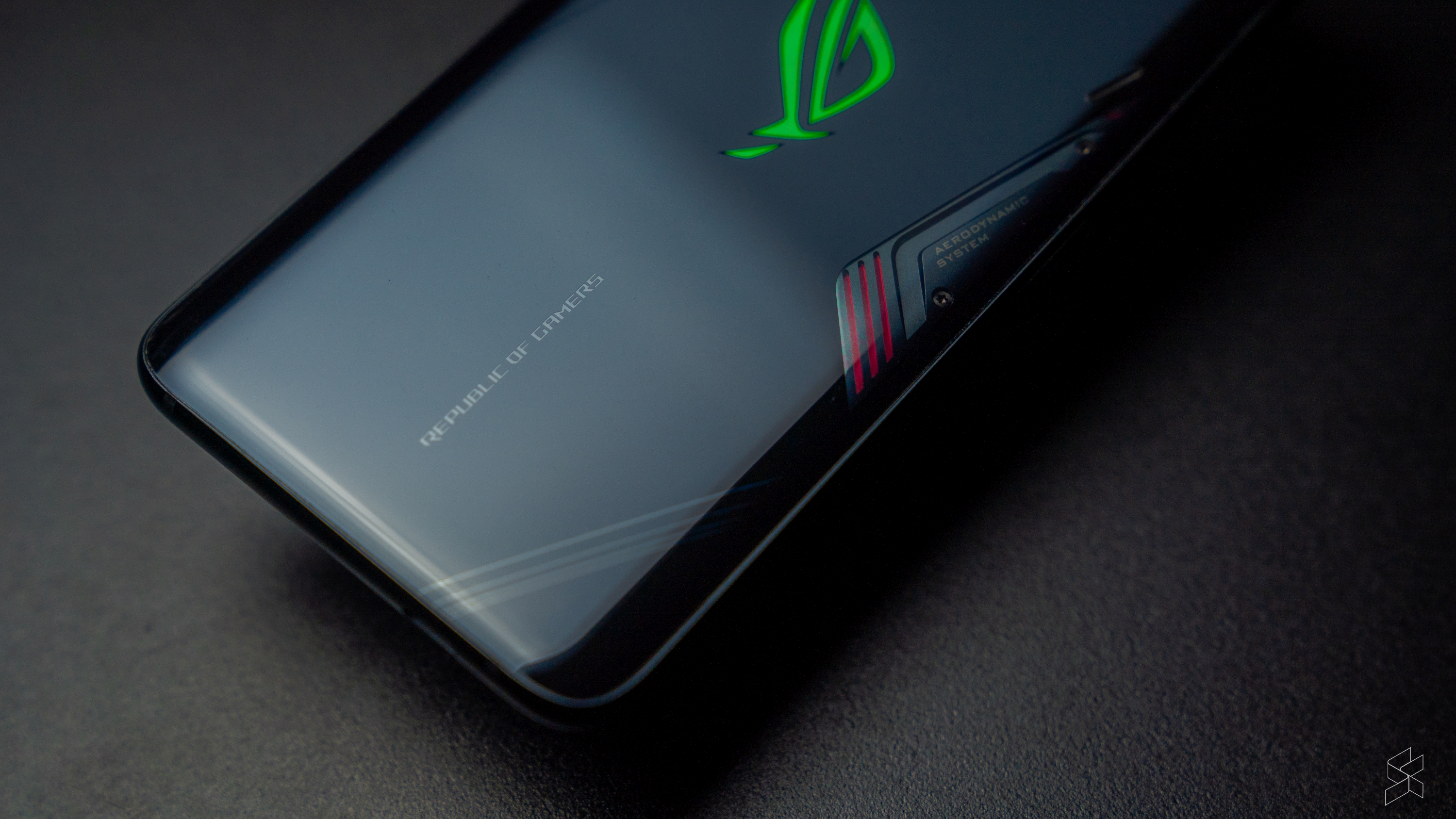
Despite being an all-gamer-phone the way the Black Shark 3 Pro is, the ROG Phone 3 has a far more grown-up look and design to it.
It has the far more manageable size and ergonomics of a conventional smartphone. It feels expensive and well put-together thanks to the choice of build materials.
Of course, it still has a huge RGB logo at the back, but by default it doesn’t switch on until you’re in the gaming X-Mode. So, with the lights off, it looks like a normal smartphone.
Now, I wouldn’t say that any of these handsets are pretty, but if I had to be seen in public with either of these, I’d rather have the ROG Phone 3. But, there is one aspect of the Black Shark 3 Pro that I do like over the ROG Phone 3. You guessed it, it’s the pop up shoulder buttons. On the ROG Phone 3, you’re getting the company’s new and improved AirTrigger capacitive shoulder buttons. And you can do a lot of cool things with it.
It can detect slides, taps and a whole bunch of other cool stuff, but honestly to me, none of that beats having a physical button. Capacitive buttons just aren’t as reliable in my experience, and that can be very frustrating.
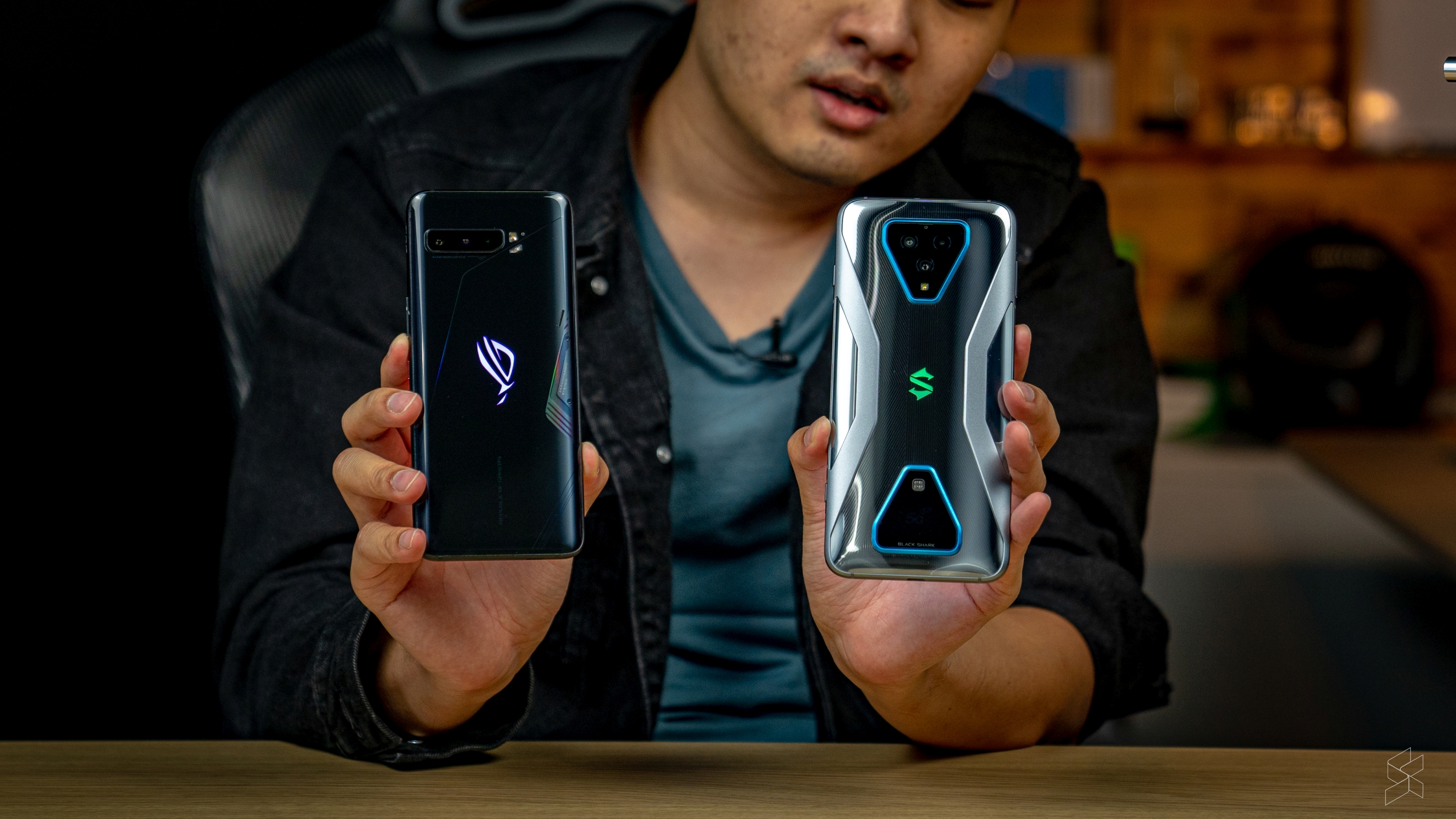
So, what have we learned here today? Well, for starters, a lot of what makes a gaming smartphone good is also what makes any smartphone good. Both of these handsets are really powerful, have awesome big batteries, fast charging and solid builds. They’ve also got great displays and excellent speakers flanking those screens. All of which are the hallmarks of a great smartphone.
The only feature that isn’t quite up to par with the best phones in the market are their cameras. Sure, both of them have triple camera setups at the back and 20+ megapixel selfie cameras up front, but the most generous description I can give them is that they’re functional.
Not necessarily a bad thing, it really just depends on your needs. And if you want a really good smartphone camera I would ask you to look elsewhere.
Under the garish bright RGB lights and “out there” design, both of these are really good high-end smartphones. But if I had to pick between the two, I’d go for the ROG Phone 3.
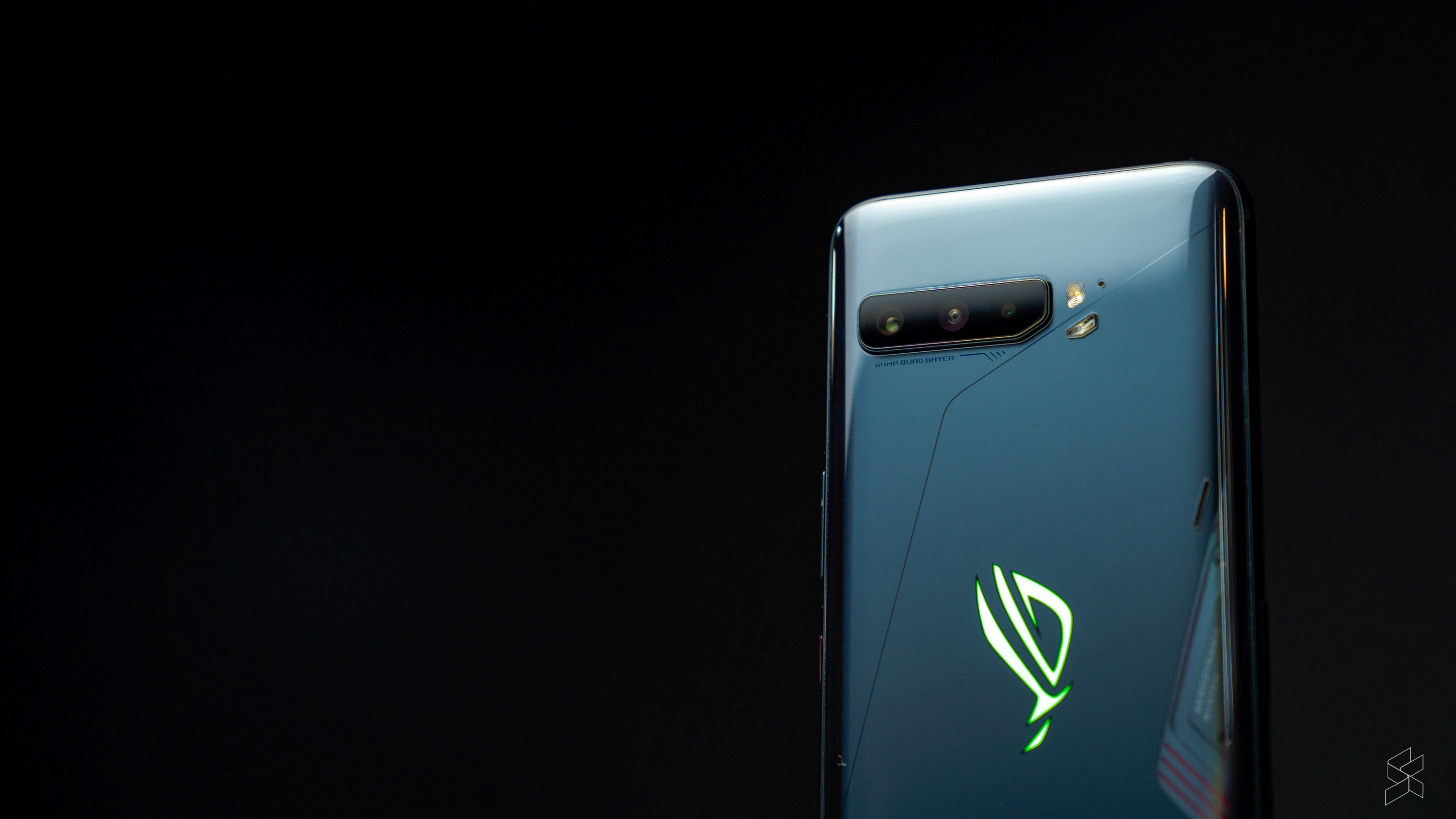
Now, saying that is a little tricky because I don’t know how much the ROG Phone 3 will retail for at this point in time but going off the ROG Phone 2’s price last year, both it and the Black Shark 3 Pro should be pretty competitive.
That being said, the ROG Phone 3 pulls ahead in several aspects to me. For starters, it has a nicer build, nicer form-factor and I think is the better looking of the two. Of course, it also has more power under the hood, but if I’m being honest the performance aspect is hardly noticeable in day-to-day usage.
ROG Phone 3 also has nicer speakers, which is always a nice touch, but it is more of a hassle to hook up a pair of wired headphones because the phone itself doesn’t have a 3.5mm headphone jack—you need the AeroCooler or a dongle for that.
But, that’s what I think. What do you think of these two smartphones? Let me know in the comments below.
Photography by Zachary Yoong on the Sony A7 III.








